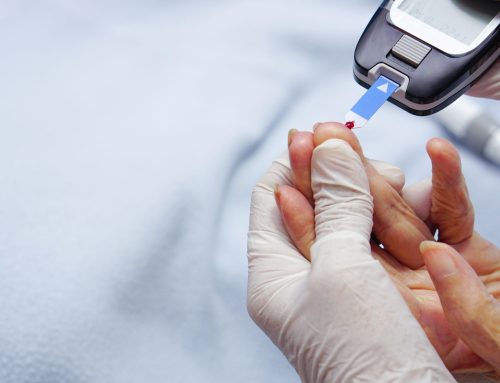
Good health and good fitness depend on good blood circulation. Good blood circulation depends on good endothelial function. Research shows that taking a daily Coenzyme Q10 supplement is associated with improved endothelial function. Supplementation with a combination of Coenzyme Q10 and high selenium yeast has significantly reduced the risk of dying from heart disease in elderly KiSel-10 study participants.
How does Coenzyme Q10 supplementation keep the heart young and healthy? The primary explanation is that Coenzyme Q10 is absolutely vital to the cellular process of producing energy, and the heart muscle needs energy constantly. An energy-starved heart is a failing heart.
A second and also important explanation is that oxidative damage causes the heart muscle cells to age and deteriorate. Coenzyme Q10 has antioxidant and anti-inflammatory effects that can help to prevent the development of atherosclerosis.
Thirdly, Coenzyme Q10 has a moderate but significant blood pressure lowering effect [Digiesi].
Quick definitions:
Oxidative damage: structural damage to cell components such as proteins, lipids, and DNA that is caused by chain reactions set off by harmful free radicals. The chain reactions can be terminated by antioxidants such as Coenzyme Q10.
Atherosclerosis: thickening of the artery walls brought about by the build-up of plaque (plaque is made up of cholesterol and other fatty substances and waste products and calcium and fibrin).
When do we need Coenzyme Q10?
We, all of us, need a daily Coenzyme Q10 supplement once we get into our 30’s and 40’s and beyond because as we (adults) get older, our bodies produce less Coenzyme Q10. We especially need Coenzyme Q10 for any of the following conditions:
- if we take a statin medication because statin medications inhibit our bodies’ own production of Coenzyme Q10
- if we want to prevent the development or worsening of heart disease, low energy syndrome disorders, or high blood pressure
- if we are scheduled for any sort of heart surgery
The endothelium and Coenzyme Q10 supplementation
First off, what is the endothelium?
The endothelium is the bio-medical term for the layer of cells that line the surface of the inside of the arteries and veins, the heart, and lymph vessels.
Secondly, what does the endothelium do?
The endothelium releases molecules, e.g. nitric oxide, angiotensin II, etc., that help to expand (dilate) or contract (constrict) the blood vessels and thus raise or lower blood pressure. The cells of the endothelium release substances (called factors) that help to maintain heart and blood vessel wall tone and that help to inhibit platelet aggregation and inflammation [Littarru].
Two studies of Coenzyme Q10 supplementation have shown improved endothelial function in the brachial artery, the major artery in the upper arm. In the one study, the patients were type-2 diabetes patients [Watts]; in the second study, the patients were type-2 diabetes patients who were also being treated with statin medications [Hamilton].
The researchers suggested that the Coenzyme Q10 improvement of endothelial function might involve two mechanisms:
- reduced extent of oxidative damage
- increased endothelial release of nitric oxide because of an improvement in vascular oxidative stress [Watts]
Thirdly, what happens in cases of endothelial dysfunction?
Endothelial dysfunction involves imbalances in the endothelial cells’ releasing of factors that dilate or constrict the blood vessels. The stable equilibrium (homeostasis) of the blood vessels is lost.
Endothelial dysfunction is a predictor of heart disease
Endothelial dysfunction is an early sign of disorders of the blood vessels that are commonly seen in pre-diabetic individuals; furthermore, endothelial dysfunction is an independent predictor of heart disease [Littarru].
Causes of endothelial dysfunction
Many causes play into the development of endothelial dysfunction in pre-diabetic and type-2 diabetic patients. The following conditions are prominent causes of endothelial dysfunction:
- insulin resistance
- abnormal amounts of lipids in the blood
- high blood pressure
- high blood sugar levels
All of these conditions can induce the oxidative stress that leads to the development of endothelial dysfunction [Littarru].
Coenzyme Q10 improves endothelial function
The use of antioxidant supplements can help to prevent the development of endothelial dysfunction. Antioxidants such as Coenzyme Q10 can and do improve endothelial function in pre-diabetic and diabetes patients. However, complete reversal of endothelial dysfunction is not likely, given the complex nature of the condition.
Combination supplements containing Coenzyme Q10
A promising antioxidant approach to the prevention and/or amelioration of endothelial dysfunction involves the use of Coenzyme Q10 supplements together with fish oil supplements and l-arginine supplements [Littarru].
In the KiSel-10 study, a daily combination of Coenzyme Q10 capsules and high selenium yeast tablets administered to healthy elderly study participants over a four-year period significantly reduced the risk of death because of heart disease [Alehagen].
Adjuvant treatment with Coenzyme Q10 supplements is especially important in patients diagnosed with chronic heart failure, ischemic heart disease, atherosclerosis, high blood pressure, and diabetes.
Caution to patients taking statin medications
All patients taking a statin medication should discuss Coenzyme Q10 supplementation with a cardiologist because the bio-medical literature clearly shows that statin medications inhibit the body’s production of Coenzyme Q10. Okuyama and Langsjoen have suggested pharmacological mechanisms by which statin medications may aggravate heart failure and atherosclerosis [Okuyama].
Summary
Coenzyme Q10 supplementation improves the functioning of the heart muscle cells and the arteries and veins by improving mitochondrial function and by acting as a lipid-soluble antioxidant. The beneficial health effects of Coenzyme Q10 may be of heightened importance to pre-diabetic and diabetes patients who are at risk of endothelial dysfunction as well as of importance to anyone at risk of impaired blood vessel function.
Exercise therapy together with Coenzyme Q10 supplementation has been shown to amplify the positive effects of the Coenzyme Q10 supplementation on the ability of the heart to contract and pump blood [Belardinelli].
The high levels of plasma Coenzyme Q10 achieved by supplementation are not associated with any side effects [Belardinelli].
Read our key article about CoQ10 and cardiovascular health in elderly people
Sources
Alehagen, U., Johansson, P., Björnstedt, M., Rosén, A., & Dahlström, U. (2013). Cardiovascular mortality and N-terminal-proBNP reduced after combined selenium and coenzyme Q10 supplementation: a 5-year prospective randomized double-blind placebo-controlled trial among elderly Swedish citizens. International Journal of Cardiology, 167(5), 1860-1866.
Belardinelli, R., Muçaj, A., Lacalaprice, F., Solenghi, M., Seddaiu, G., Principi, F., & Littarru, G. P. (2006). Coenzyme Q10 and exercise training in chronic heart failure. European Heart Journal, 27(22), 2675-2681.
Digiesi, V., Cantini, F., Oradei, A., Bisi, G., Guarino, G. C., Brocchi, A., & Littarru, G. P. (1994). Coenzyme Q10 in essential hypertension. Molecular Aspects of Medicine, 15 Suppls257-s263.
Hamilton, S. J., Chew, G. T., & Watts, G. F. (2009). Coenzyme Q10 improves endothelial dysfunction in statin-treated type 2 diabetic patients. Diabetes Care, 32(5), 810-812.
Littarru, G. P., Tiano, L., Belardinelli, R., & Watts, G. F. (2011). Coenzyme Q10, endothelial function, and cardiovascular disease. Biofactors (Oxford, England), 37(5), 366-373.
Okuyama, H., Langsjoen, P. H., Hamazaki, T., Ogushi, Y., Hama, R., Kobayashi, T., & Uchino, H. (2015). Statins stimulate atherosclerosis and heart failure: pharmacological mechanisms. Expert Review of Clinical Pharmacology, 8(2), 189-199.
Watts, G. F., Playford, D. A., Croft, K. D., Ward, N. C., Mori, T. A., & Burke, V. (2002). Coenzyme Q10 improves endothelial dysfunction of the brachial artery in Type II diabetes mellitus. Diabetologia, 45(3), 420-426.









Leave A Comment